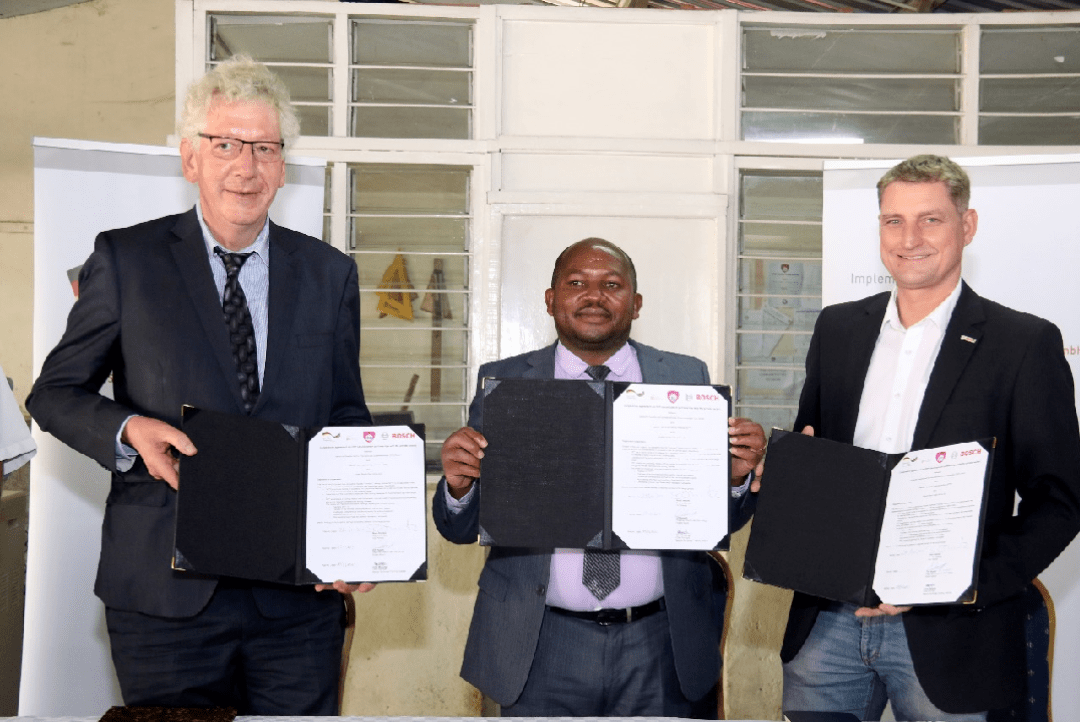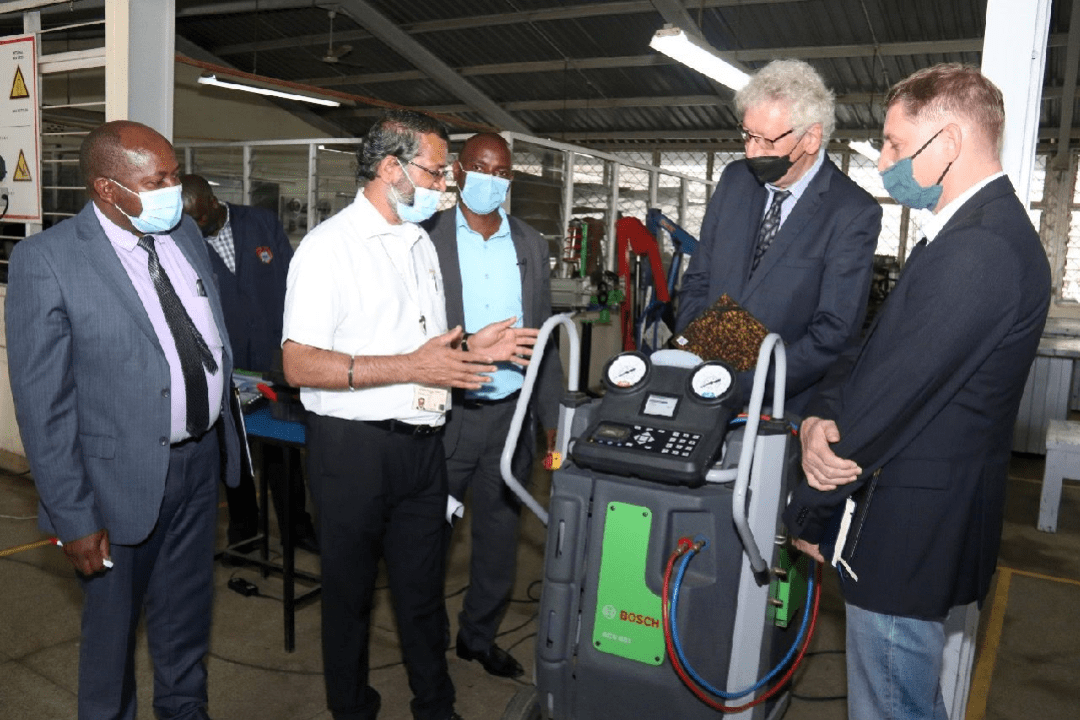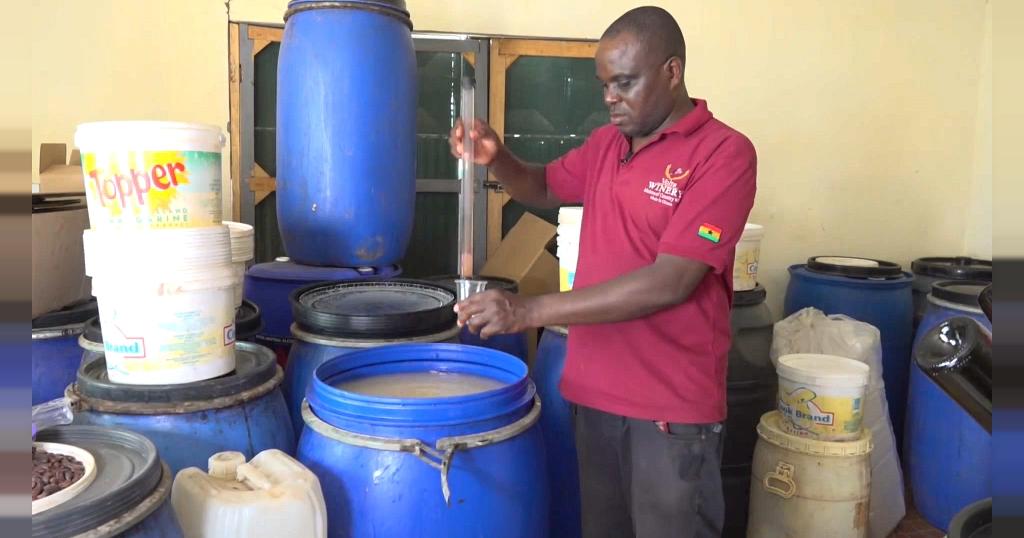NTTI inks deal to upskill artisans in Automotive sector
By: Rading Biko
Posted on Thursday, December 2, 2021

The Jua Kali artisans working in the Automotive Sector will benefit from a new partnership aimed at upskilling their technical skills. The partnership dubbed Skills for Employment in the Automotive Sector (SEAS) will see Nairobi Technical Training Institute (NTTI) partner with Robert Bosch and Deutsche Gesellschaft für Internationale Zusammenarbeit (GIZ) GmbH in Kenya, to provide short courses for jua kali artisans and grow the informal workshops into more professional service stations.
According to Bosch, a German multinational engineering and technology company with operations in Kenya, has donated state-of-the-art training equipment that will be used to offer the short-term training. Additionally, Bosch has trained the trainers from NTTI who in-turn will transfer the skills to the artisans. They will also offer technical support throughout the training, as well as internship opportunities through their clients, to complement the experiential learning.
On their part, NTTI as a growing Centre of Excellence for Automotive Mechatronics, developed the training curriculum in close cooperation with technicians from Bosch. They will be providing the trainers and a training venue for the upskilling programme. The short course will cover vehicle diagnostics; Computerized 3D wheel balancing and alignment; Air conditioning trouble shooting; and general service.
The partnership was bridged by GIZ Kenya who will support in the provision of additional training consumables and equipment to guarantee top notch experiential learning for the trainees. They will support NTTI to design packages for specific target groups and actively promote the training program.
A total of 120 artisans are expected to benefit from this partnership over the next one year, starting December 2021. The trainees will be mobilized by the partners and in close cooperation with the Kenya National Federation of Jua Kali Associations (KNFJKA). The training will target 40 trainees per class for a maximum of 4-weeks to be done during the school holidays (when the full-time students are on break). The project is willing to deliver evening classes, subject to demand.
While welcoming this innovative approach to skills building, Mr Bodo Immink, Country Director GIZ Kenya noted, “Keeping automotive technicians in Kenya up-to-date and current requires constant innovation and change. GIZ is delighted to support this partnership for a better skilled workforce that will not only improve vehicle and road safety significantly, but also contribute to a higher efficiency in the whole transport sector.”
“We recognise that the current Jua Kali Artisan is a skilled person who has undertaken some formal education without certification in the Automotive sector. The SEAS project will provide the avenue for certification. The certification will provide opportunity for the Artisan to remain competitive in the changing Automotive Career Market.” Said Mr Simon Nyaga, Deputy Principal, NTTI who read remarks on behalf of Mrs Glory Mutungi, Chief Principal, NTTI.

Mr Nyamai Wambua, Head of Programmes and Linkages at the Kenya National Federation of Jua Kali artisans lauded the initiative noting “Automotive Sector has been identified for targeted and institutionalized collaboration between with Technical Training Institutes (TTIs). Upskilling is a critical intervention as the Jua Kali sector contributes to skills development and in the implementation of the ongoing national reforms in the Technical and Vocational Education and Training (TVET) sub-sector in Kenya, especially in the promotion of Competence-Based Education and Training (CBET).”
In the long-run, NTTI hopes to operate this training course on a cost-covering mode. This is key for sustainability to allow the institution to cater for routine maintenance of equipment in the future
This new training builds on an already existing partnership. NTTI is among seven public training institutions pioneering the Cooperative Vocational Training model and closely collaborating with companies to train technicians in identified vocational trade areas. The German Development Cooperation will support NTTI in the goal to become a Centre of Excellence in Automotive Mechatronics. The initiative is part of the Kenya-German TVET initiative implemented by GIZ and the German Development Bank (KfW) on behalf of the German Federal Ministry for Economic Cooperation and Development (BMZ). Bosch were instrumental in the development of the new Level 6 Automotive Mechatronics curriculum through secondment of a staff member who provided input for the new demand driven curriculum.
The cooperative training model combines learning at a training institution with industrial experience and mentorship offered through in-company training. Implementation is based on a competence-based educational and training (CBET) curricula, which forms the basis of training plans at the training institution and company-based mentoring plans.
Students spend 50 per cent of their time in technical training institutions, and the remaining 50 per cent applying the knowledge gained in class in an actual work environment. On completion, the trainees receive a level 6 Diploma from TVET-CDACC, with the option of a C-level certificate offered by the Delegation of German Industry and Commerce for Eastern Africa (AHK).
NTTI welcomed the first cohort of trainees in October 2020 and the second cohort in September 2021. The implementation of this vocational training skills programme has seen an increased cooperation between NTTI and at least nine companies in providing training slots for automotive mechatronics trainees studying at the institution.







